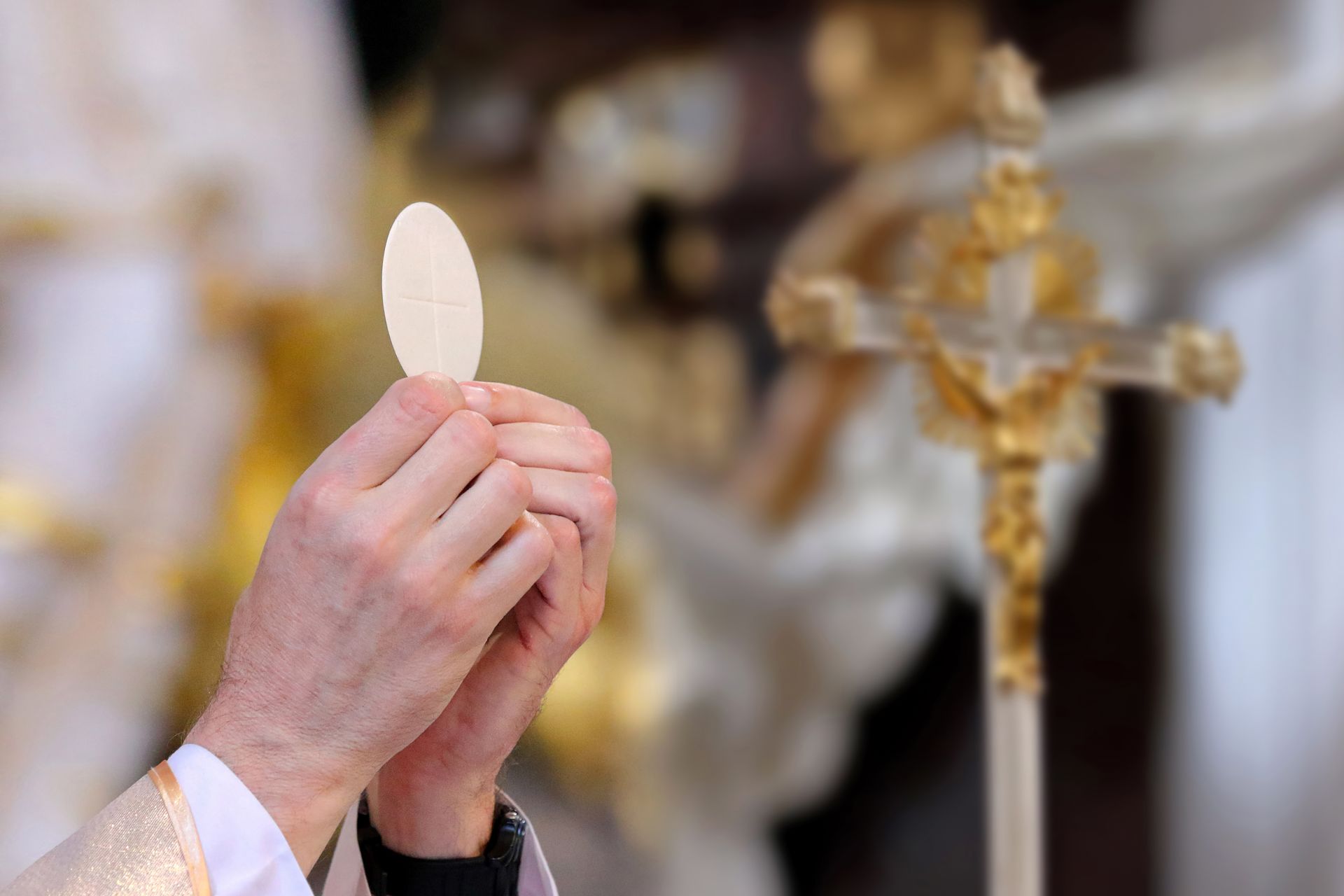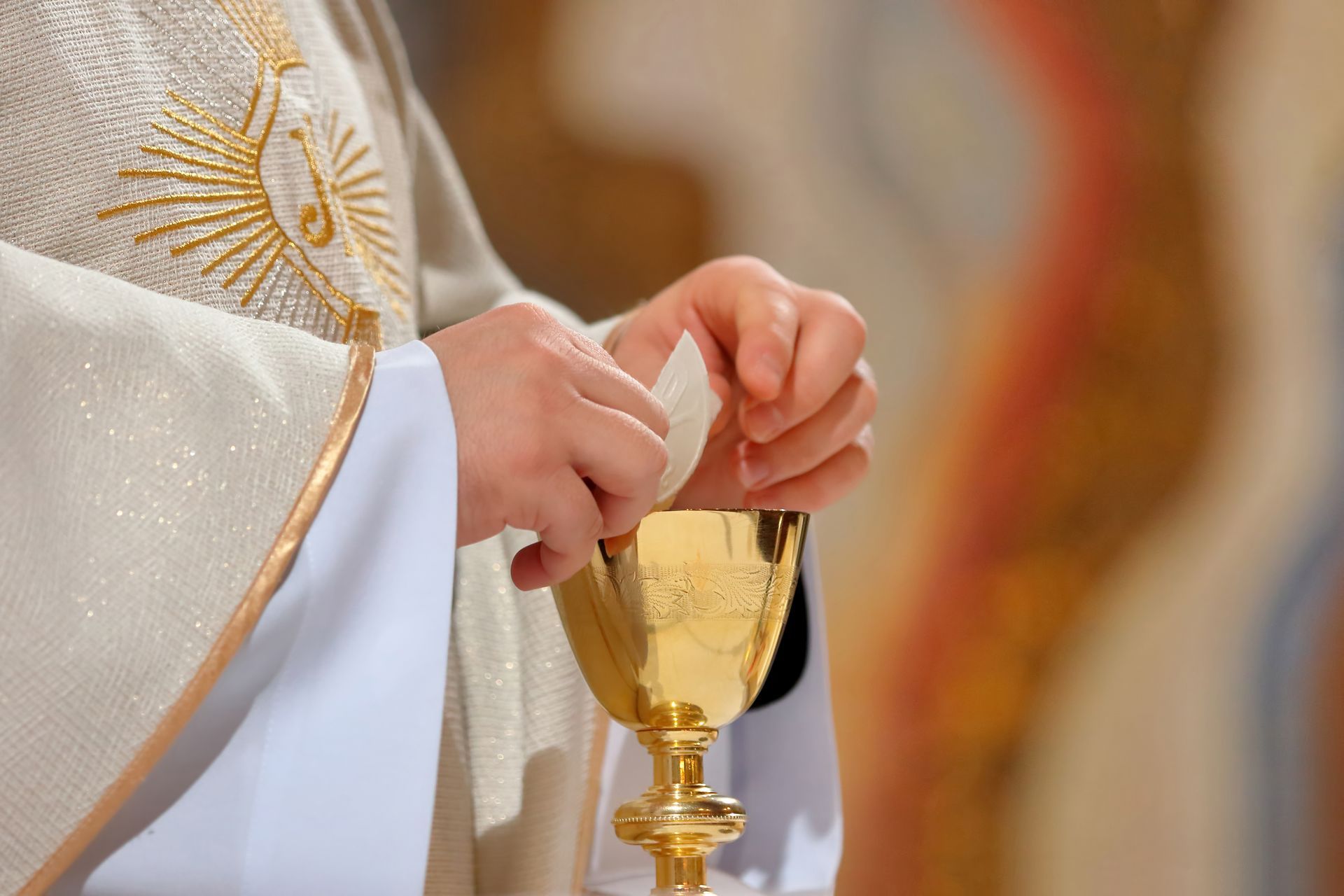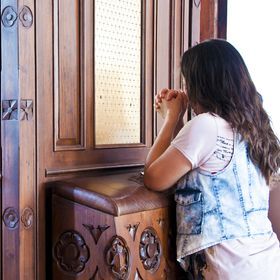Precepts of the Church
The precepts of the Church are set in the context of a moral
life bound to liturgical life and nourished by liturgical life.
What are the Precepts of the Church?
Train yourself for devotion, for, while physical training is of limited value, devotion is valuable in every respect, since it holds a promise of life both for the present and for the future.
1 Timothy 4:7-8
The Precepts of the Church are five positive laws that the Church gives to guide the faithful to fulfill at least a minimum level of prayer, moral reflection, spiritual growth, and love for God and neighbor.
Far from serving as an onerous legal imposition on the faithful, the Precepts of the Church serve as a fundamental minimum of pious practice expected of all members of the faithful.
There are five precepts listed in the Catechism of the Catholic Church (cf. CCC 2041):
The First Precept
"You shall attend Mass on Sundays and on holy days of obligation and rest from servile labor"
The first precept requires that all members of the Church attend Mass on Sundays and Holy Days of Obligation and refrain from those activities that would impede the proper sanctification of these days.
The first precept requires the faithful to sanctify the day commemorating the Resurrection of the Lord as well as the principal liturgical feasts honoring the mysteries of the Lord, the Blessed Virgin Mary, and the saints; in the first place, by participating in the Eucharistic celebration, in which the Christian community is gathered, and by resting from those works and activities which could impede such a sanctification of these days.
The Second Precept
"You shall confess your sins at least once a year."
The second precept requires every member of the faithful, after having reached the age of discretion, to confess in kind and number all of their grave sins in the Sacrament of Penance and Reconciliation at least once a year. It is recommended that they also confess their venial sins.
The second precept ensures preparation for the Eucharist by the reception of the sacrament of reconciliation, which continues Baptism's work of conversion and forgiveness.
The Third Precept
"You shall receive the sacrament of the Eucharist at least during the Easter season"
The third precept states that the faithful must receive the Eucharist at least annually during the Easter season. (Cf. CCC 2042)
The third precept guarantees as a minimum the reception of the Lord's Body and Blood in connection with the Paschal feasts, the origin and center of the Christian liturgy.
The Fourth Precept
"You shall observe the days of fasting and abstinence established by the Church"
The fourth precept stipulates that the faithful must observe the prescribed days of fasting and abstinence during the liturgical year as a penitential practice. The prescribed days of fasting are Ash Wednesday and Good Friday. On these days Catholics from the age of eighteen through fifty-nine may have one full meal and two smaller meals, which together do not equal a full meal. Every Friday of the year is a day of abstinence, and Catholics from the age of fourteen should abstain from eating meat. On Fridays outside of Lent, the bishops' conference may allow the faithful in its region of the world to substitute abstinence from meat with an act of charity or penance.
The fourth precept ensures the times of ascesis and penance which prepare us for the liturgical feasts and help us acquire mastery over our instincts and freedom of heart.
The Fifth Precept
"You shall help to provide for the needs of the Church"
The fifth and final precept obliges the faithful to contribute to the material needs of the Church as they are able. (Cf. CCC 2043)
The fifth precept means that the faithful are obliged to assist with the material needs of the Church, each according to his own ability. The faithful also have the duty of providing for the material needs of the Church, each according to his abilities.
The Catechism of the Catholic Church in paragraph 2041 and paragraph 2048 addresses this question.
-The Didache Bible







